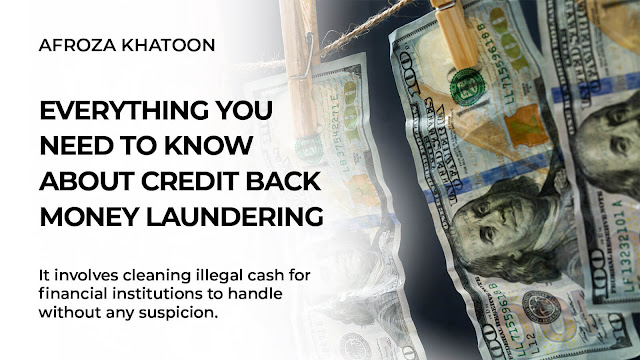Can Zohran Mamdani Realistically Tackle NYC's Poverty and Housing Crisis?
From rent control to poverty relief, Zohran Mamdani's bold promises face the real test: can New York City actually afford his agenda in 2025?
 |
| Can Zohran Mamdani Realistically Tackle NYC's Poverty and Housing Crisis? |
New York City mayoral candidate Zohran Mamdani's bid has sparked a fresh wave of progressive enthusiasm— especially around housing justice and anti-poverty reform. His platform promises universal rent control, massive public housing expansion, and economic safety nets for the city's most vulnerable residents.
But ambition and implementation rarely go hand in hand in NYC politics. This article takes a closer look at whether Mamdani's promises are politically and financially realistic— or if they risk becoming another progressive blueprint that sounds revolutionary but stalls in reality.
Campaign Promises Vs. NYC Reality (2025)
Zohran Mamdani's entry into the New York City mayoral race has ignited conversations around systemic poverty, rent burdens and economic justice. His platform, rooted in democratic socialism, promises radical affordability reforms that challenge the status quo.
But NYC in 2025 is grappling with escalating housing shortages, ballooning rent indexes and a fiscal deficit worsened by federal funding cuts. Can promises translate into policy in a city where bureaucracy often beats ambition?
What Exactly is Mamdani Promising?
At the heart of Mamdani's campaign are sweeping proposals to confront affordability head-on. These include:
- Expansion of public housing with aggressive city-owned developments.
- Universal rent control, far stricter than current stabilization laws.
- Guaranteed housing rights and an eviction-free NYC.
- City-level poverty reduction programs, possibly including a localized UBI-style pilot.
- Eliminating tax breaks for speculative development while redirecting those funds to low-income housing initiatives.
To his supporters, these aren't just ideas— they're overdue corrections. But ambition and execution live on opposite sides of NYC politics.
The Political Math: Can These Policies Pass?
NYC's mayor wields power, but not unchecked. Even with progressives gaining local influence, the City Council is a diverse body and budgetary authority has limits.
- State Preemption: Albany can— and often does— block aggressive housing reform.
- Charter Restrictions: The city's legal framework may prevent sweeping financial reshuffles.
- Institutional Pushback: Strong unions, real estate lobbies and even federal oversight could stall bold moves.
In short, Mamdani needs more than mayoral victory— he needs institutional transformation.
Have Similar Promises Worked Before?
History hasn't been kind to lofty housing pledges in NYC. De Blasio's "affordable housing" plan delivered units— but skewed toward middle-income earners, not the most vulnerable. DSA-aligned council members have made local gains, but systemic overhaul remains elusive.
Comparative efforts from past reformists, such as Scott Stringer and Jumaane Williams, show the difficulty in reconciling bold visions with the machinery of governance. Visionary leadership alone isn't enough.
Budget Breakdown: Where's the Money Coming From?
Mamdani's proposals hinge on aggressive budget reallocation— but NYC's financial reality in 2025 is tense.
- Tax base pressures: Post-pandemic remote work has thinned corporate tax revenues.
- Federal funding: Programs like NYCHA modernization rely heavily on national funding, which can't be redirected locally.
- Spending caps: City charter-mandated caps will force hard trade-offs between programs.
Without new revenue streams or massive cuts elsewhere, many of Mamdani's ideas may remain conceptual.
What Experts are Saying
Housing policy analysts and urban economists are cautiously skeptical.
"A city-wide rent freeze would face massive legal challenges unless passed at the state level," says Sandra L., a housing attorney.
"The idea of eviction-free housing isn't new— but it's never survived fiscal scrutiny," notes an Urban Institute researcher.
Even among supporters, concerns exist: delivering poverty relief at scale in NYC requires granular coordination— across departments, state agencies and neighborhood organizations.
Verdict: Visionary, But is it Realistic?
Zohran Mamdani's campaign has reignited serious dialogue on poverty and housing, reframing them as solvable crises rather than tolerated conditions. But while his ambition resonates, realism remains the missing middle.
- Some proposals are viable with council support and budget reshuffling.
- Others depend on state-level buy-in and cross-agency collaboration.
- The biggest risk? Raising expectations that outpace NYC's ability to deliver within its legal and fiscal boundaries.
If Mamdani manages to convert even part of his vision into action, he could redefine what NYC's leadership can look like. But unless political will, public support and budget alignment follow— his platform may become another progressive blueprint that never got built.










-Review.jpg)




 We Stand With Gaza
We Stand With Gaza